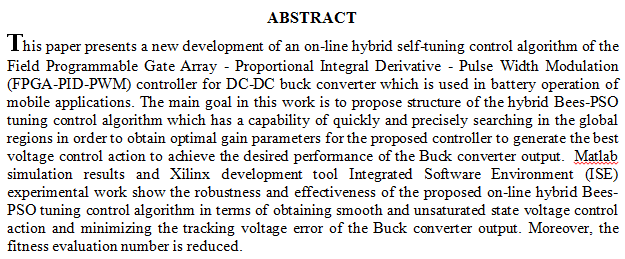
Objectives: to evaluate patient knowledge with hemodialysis and to determine the effectiveness of Self-regulation Fluid Program on Patients with hemodialysis self-efficacy for fluid adherence in Al-Diwaniyah Teaching Hospital.
Methodology: A quasi-experimental design (two group design: pre-test and post-test) was used. This study was conducted in Al-Diwaniya Teaching Hospital for the period from (15th of October 2018 to 20th of May 2019) on a non-probability (purposive) sample consisting of (60 patients) treatment in hemodialysis units. A questionnaire was built as a data collection tool and consisted of four parts:
First part: Demographic characteristics of the pati
... Show MoreThis work bases on encouraging a generous and conceivable estimation for modified an algorithm for vehicle travel times on a highway from the eliminated traffic information using set aside camera image groupings. The strategy for the assessment of vehicle travel times relies upon the distinctive verification of traffic state. The particular vehicle velocities are gotten from acknowledged vehicle positions in two persistent images by working out the distance covered all through elapsed past time doing mollification between the removed traffic flow data and cultivating a plan to unequivocally predict vehicle travel times. Erbil road data base is used to recognize road locales around road segments which are projected into the commended camera
... Show More (1)
(1)
 (1)
(1)
Altruism is one of good qualities of human being expressing his highness and triumph. Self control has A signifies in a lot of psychological, educational, Social, ethical and healing fields Where the higher self control relates with high degrees of carefulness accuracy, problem solving, choice. judgment and decision making. the present study aimos at measuring altruism among university students , self control among them , recognizing the statistically differences significance on self control among university students according to gender variable and recognizing the correlation between attruism and self control among university students . the sample consists of the basic application one (200) students (100) males and (100) males that had
... Show MoreThe goal of this paper is to design a robust controller for controlling a pendulum
system. The control of nonlinear systems is a common problem that is facing the researchers in control systems design. The Sliding Mode Controller (SMC) is the best solution for controlling a nonlinear system. The classical SMC consists from two phases. The first phase is the reaching phase and the second is the sliding phase. The SMC suffers from the chattering phenomenon which is considered as a severe problem and undesirable property. It is a zigzag motion along the switching surface. In this paper, the chattering is reduced by using a saturation function instead of sign function. In spite of SMC is a good method for controlling a nonlinear system b
 (8)
(8)
 (3)
(3)
 (3)
(3)
Today the NOMA has exponential growth in the use of Optical Visible Light Communication (OVLC) due to good features such as high spectral efficiency, low BER, and flexibility. Moreover, it creates a huge demand for electronic devices with high-speed processing and data rates, which leads to more FPGA power consumption. Therefore; it is a big challenge for scientists and researchers today to recover this problem by reducing the FPGA power and size of the devices. The subject matter of this article is producing an algorithm model to reduce the power consumption of (Field Programmable Gate Array) FPGA used in the design of the Non-Orthogonal Multiple Access (NOMA) techniques applied in (OVLC) systems combined with a blue laser. However, The po
... Show MoreApplications of nonlinear, time variant, and variable parameters represent a big challenge in a conventional control systems, the control strategy of the fuzzy systems may be represents a simple, a robust and an intelligent solution for such applications.
This paper presents a design of fuzzy control system that consists of three sub controllers; a fuzzy temperature controller (FC_T), a fuzzy humidity controller (FC_H) and a ventilation control system; to control the complicate environment of the greenhouse (GH) using a proposed multi-choice control system approach. However, to reduce the cost of the crop production in the GH, the first choice is using the ventilation system to control the temperature and humidit
... Show MoreThe agricultural activity has a great significance in the all four dimensions of sustainable development. Firstly, the economic dimension which it contributes with the GDP, as well as, it is considered as an important source to attract the investment. Secondly, the environmental dimension which also contributes with conserving of the biodiversity, combating the desertification, and increasing the farmlands. Thirdly, for its role in the social dimension to achieve the food security, to eradicate the poverty, and providing jobs. Fourthly, toward the institutional dimension as well it is considered as a source that allows all people to participate effectively, and to exchange of the local and universal experiences and perspectives. For conf
... Show More